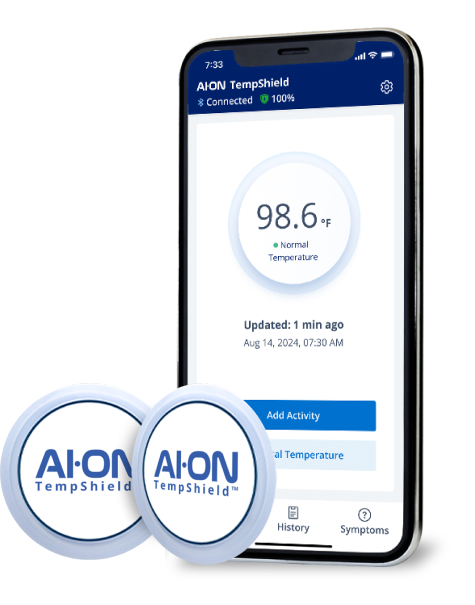Advancing Early Infection Detection
Hear from patients and the Director of Medical Oncology at Roswell Park Cancer Center, Ellis Medicine.
Features of the AION TempShield™

Earlier Detection of Infection is Critical
- Allows for timely initiation of appropriate treatment
- Reduces the risk of complications, hospitalizations, or long-term health consequences associated with untreated or inadequetly treated infections
- Can result in cost savings for both patients and healthcare systems
Who can benefit?
Cancer
Post Operation
Sepsis
Pediatrics
Long-Term Care
News
AI in Healthcare Podcast
“How Wearables Are Transforming Cancer Care”
Sam Barend, CEO of AION Biosystems, joins oncology thought leaders Dr. Doug Flora, Dr. Sanjay Juneja, and Dr. David Penberthy to discuss how TempShield is redefining the standard of care through early, proactive complication detection.



